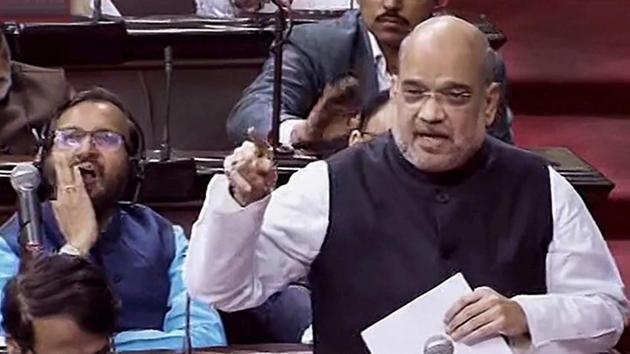Union Home Minister Amit Shah’s recent remarks in the Rajya Sabha, where he confidently asserted that the Congress would not return to power at the Centre for another 15–20 years, sparked a heated political debate. Was this a display of arrogance, or was it rooted in strategic confidence? Opposition parties predictably labelled it as the ruling party’s growing hubris, while political analysts weighed in on the historical consequences of such overconfidence.
History has shown that arrogance in politics often leads to a downfall. Several iconic leaders have suffered electoral setbacks due to perceived or real overconfidence. Indira Gandhi’s Emergency-era policies led to her defeat in 1977. Rajiv Gandhi, despite an overwhelming mandate in 1984, faced a major setback in 1989 due to corruption allegations surrounding the Bofors scandal. Regional leaders like NT Rama Rao and K Chandrasekhar Rao (KCR) also witnessed sharp declines after periods of dominance. Similarly, N. Chandrababu Naidu’s decision to sever ties with the NDA before 2019, questioning the Centre’s scrutiny of fund allocations, backfired. His assertion of seniority and political experience did not resonate with voters, leading to his party’s defeat in Andhra Pradesh.
Given this precedent, it is not surprising that Amit Shah’s remarks were perceived as arrogant. However, there is another perspective—one that suggests his statement was based on an astute reading of India’s current political landscape.
Amit Shah’s track record in election management is formidable. Under his leadership, the BJP has consistently maintained a high electoral strike rate, a feat unmatched by any other political party. More importantly, the Opposition’s failure to mount a credible challenge has only bolstered the BJP’s position.

While the BJP-led governments at the Centre and in states have delivered on several promises—whether in infrastructure, welfare schemes, or governance—the Opposition remains fragmented. The Congress, the largest opposition party, continues to struggle with leadership crises, internal rifts, and electoral mismanagement. Additionally, regional parties forming alliances appear more interested in protecting themselves from legal troubles rather than offering a governance alternative. Leaders such as Sonia Gandhi, Rahul Gandhi, Arvind Kejriwal, KCR, Lalu Prasad Yadav, and MK Stalin have all faced corruption allegations, reinforcing the perception that Opposition unity is driven by self-preservation rather than ideology.
The Indian judiciary and constitutional bodies have also been drawn into this political battle. Incidents like the Delhi High Court fire, which allegedly destroyed crucial evidence, and the Supreme Court’s insistence on maintaining its self-appointed collegium system have fueled concerns about institutional transparency. The Opposition’s simultaneous criticism of and reliance on the judiciary further exposes inconsistencies in their stance.
The BJP, on the other hand, has used this narrative effectively. By positioning itself as a party committed to strong governance and national security, it has maintained an edge over its rivals. The electorate, despite occasional dissatisfaction, has largely returned to the BJP fold, as seen in recent electoral outcomes.
The 2019 elections served as a wake-up call for the BJP, which had hoped to cross 400 seats but fell short. The Congress, though improving its tally to 99 seats, failed to capitalize on this minor resurgence. Fearmongering about the BJP allegedly rewriting the Constitution or removing reservations did not hold up against the ruling party’s strategic outreach. The grand turnout at the Prayagraj Mahakumbh, where over 65 crore Hindus participated, symbolized the consolidation of the BJP’s core voter base.
Additionally, the BJP’s electoral strength was reaffirmed by its ability to retain power in Maharashtra and Haryana while improving its position in Jharkhand and Jammu & Kashmir. The upcoming Bihar and Tamil Nadu assembly elections will be crucial in determining whether the BJP’s confidence is well-founded. If the party, alongside Nitish Kumar’s JD(U), secures Bihar and makes inroads in Tamil Nadu with AIADMK, it will further solidify its dominance.
The distinction between arrogance and confidence in politics often depends on electoral outcomes. For now, the BJP’s track record suggests that its confidence is rooted in strategic calculations rather than mere bravado. However, should the party face unexpected defeats in key states, the narrative could shift.
Ultimately, Indian politics remains fluid, shaped by voter sentiment and emerging socio-political dynamics. Whether Amit Shah’s assertion stands the test of time or becomes another cautionary tale of political overconfidence remains to be seen.






